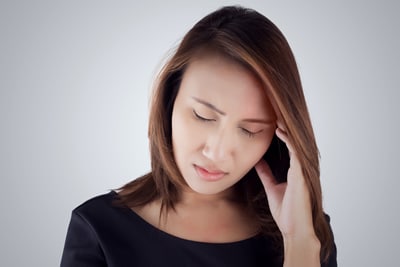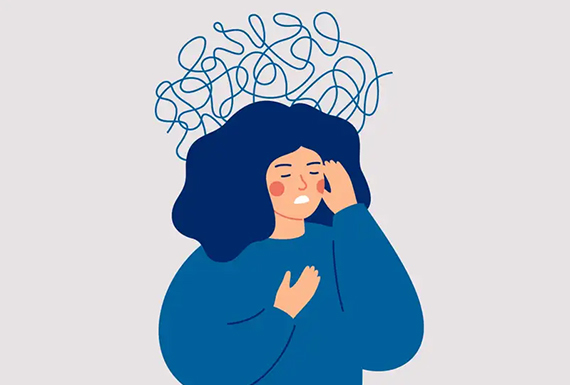Private care from a licensed therapist for anxiety in your area
Private care from a licensed therapist for anxiety in your area
Blog Article
Checking Out Different Approaches in Counselling for Anxiety Disorder for Long Lasting Adjustment
When dealing with anxiety problems, it's vital to explore a range of counseling strategies. Each method provides one-of-a-kind insights and tools to aid you manage your signs effectively. You might find that incorporating methods can produce the very best outcomes. Nevertheless, understanding the nuances of these techniques is vital to promoting long lasting adjustment. What if the appropriate combination could launch a new level of psychological health for you?
Understanding Anxiousness Conditions: A Short Review
Anxiety problems, which affect numerous individuals worldwide, can substantially influence day-to-day live. You might experience overwhelming sensations of anxiety or worry that appear uncontrollable. These sensations can result in physical signs and symptoms like an auto racing heart, sweating, or perhaps dizziness. Typical kinds of anxiousness conditions include generalized anxiousness problem, panic problem, and social anxiety problem. Each has unique indicators, however they all share a propensity to disrupt your regular and relationships.Understanding the root causes of your anxiety is crucial. It may stem from genes, brain chemistry, or life experiences. Acknowledging your triggers can help you handle your feedbacks better. It is essential to bear in mind that you're not alone in this battle. Lots of people deal with similar obstacles, and looking for assistance is a strong step toward sensation better. By discovering concerning anxiety conditions, you're already on the course to understanding and managing your problem extra efficiently.
Cognitive-Behavioral Therapy: Challenging Adverse Idea Patterns
In Cognitive-Behavioral Therapy, you'll start by recognizing the unfavorable thought sets off that add to your stress and anxiety. You'll work on changing them with even more favorable options when you acknowledge these thoughts. Together, you'll develop efficient coping methods to aid manage your anxiousness in day-to-day circumstances.
Recognizing Adverse Thought Triggers

When you experience moments of distress, identifying the certain triggers behind your negative thoughts can be vital in taking care of anxiety. Beginning by taking note of scenarios that prompt feelings of worry or concern. Is it a congested area, a future target date, or a discussion with specific people? Jot down these circumstances in a journal. This will certainly aid you recognize patterns in your thinking. Additionally, notice physical sensations that accompany your unfavorable thoughts, like a racing heart or tightness in your chest. By identifying these triggers, you get understanding right into what's sustaining your anxiousness. Comprehending these links is the very first step in testing those ideas and eventually reclaiming control over your psychological actions.
Replacing Thoughts With Positives
Testing unfavorable thought patterns is an essential action in transforming your mindset and reducing anxiety. You might frequently discover on your own trapped in cycles of insecurity or tragic reasoning. As opposed to allowing these thoughts dictate your feelings, method replacing them with favorable affirmations or reasonable choices. For example, when you believe, "I can not handle this," change it to, "I can handle difficulties one action each time." This simple adjustment can substantially affect your mood. Consistently recognizing and countering these adverse ideas helps create a much healthier interior discussion. Bear in mind, it requires time and initiative, however constantly exercising this strategy can cause long lasting adjustment, encouraging you to face anxiousness with restored confidence and resilience.
Building Coping Techniques With Each Other
Changing adverse thoughts is just the start of taking care of stress and anxiety successfully. To develop long-term change, you need to build coping strategies that equip you. Cognitive-Behavioral Therapy (CBT) helps you recognize and challenge those purposeless idea patterns. With each other, you and your therapist can discover just how these thoughts impact your sensations and behaviors.Start by establishing sensible techniques, like journaling or mindfulness exercises, that allow you to challenge anxiety head-on. When you face your anxieties gradually, you'll find out to respond in a different way.

Mindfulness and Acceptance-Based Approaches: Growing Present-Moment Awareness
As you navigate the complexities of stress and anxiety, integrating mindfulness and acceptance-based techniques can substantially improve your ability to grow present-moment recognition. By concentrating on the right here and currently, you'll locate that you can observe your ideas and sensations without judgment (Counseling services for anxiety). This practice aids you recognize your anxiousness without feeling overwhelmed by it.Engaging in mindfulness workouts, such as deep breathing, body scans, or led meditations, enables you to ground on your own in your existing experience. Acceptance-based methods encourage you to accept your emotions as opposed to deal with versus them. They lose their power over you.Incorporating these methods into your daily routine can transform just how you react to stress and anxiety when you approve your feelings. You'll create resilience and find out to browse difficult situations with greater convenience. Inevitably, growing present-moment recognition lays the structure for long-term modification, equipping you to lead a more satisfying life
Direct Exposure Therapy: Facing Anxieties Progressively
Exposure treatment aids you confront your concerns in a check this steady means, making it less frustrating. You'll find out techniques to deal with anxiety-provoking scenarios detailed, while likewise developing coping approaches to handle your reactions. This approach equips you to take control and reduce anxiety gradually.
Progressive Exposure Techniques

When encountering anxiety, slowly challenging your worries can be a powerful way to gain back control. This technique, referred to as progressive direct exposure, entails slowly subjecting on your own to the circumstances or items that trigger your anxiety. Beginning with less challenging circumstances and progressively function your means approximately more challenging ones. For instance, if you hesitate of public speaking, you might start by speaking before a mirror, then proceed to sharing ideas with a friend, and at some point address a little group. Each step aids desensitize you to the fear, constructing your confidence with time. Keep in mind, it's important to speed on your own and celebrate small victories as you move through this procedure, strengthening your capability to handle anxiety successfully.
Structure Coping Approaches
Structure efficient coping methods is essential for taking care of stress and anxiety, specifically as you confront your worries gradually - Counseling services for anxiety. One effective approach is exposure therapy, where you start by facing your anxieties in a regulated manner. Begin with much less intimidating circumstances and slowly function your way as much as even more challenging scenarios. This progressive exposure assists desensitize you to stress and anxiety sets off, making them much less overwhelming.Incorporate relaxation techniques, such as deep breathing or mindfulness, to calm your mind during direct exposure. Track your progression, celebrating small triumphes in the process to increase your confidence. Remember, it's fine to take your time; the goal isn't excellence however consistent improvement. By constructing these strategies, you'll equip on your own to browse stress and anxiety and embrace life much more completely
Psychodynamic Treatment: Revealing Origin of Anxiety
Psychodynamic treatment explores the unconscious mind, exposing the source of your anxiousness. By examining your ideas, feelings, and past experiences, this strategy helps you discover underlying problems and unsettled concerns that may contribute to your current stress and anxiety. You'll function with a therapist to check out childhood experiences, relationships, and psychological patterns that shape your actions today.As you acquire understanding into these deeper layers of your mind, you'll begin to recognize just how past occasions affect your present actions. This understanding can lead to catharsis, allowing you to refine emotions you might have suppressed.Through the healing connection, you can likewise identify defense devices that may have developed gradually, providing a clearer course to change. Inevitably, psychodynamic treatment furnishes you with the devices to resolve your anxiousness at its core, advertising enduring makeover in your emotional well-being.
All Natural and integrative Techniques: Integrating Methods for Greater Effectiveness
Incorporating different restorative techniques can enhance your journey towards managing stress and anxiety more efficiently. By incorporating elements from cognitive-behavioral treatment, mindfulness techniques, and alternative strategies, you can produce a tailored method that resolves your special requirements. For instance, you may utilize cognitive-behavioral methods to challenge adverse thought patterns while incorporating mindfulness workouts to ground on your own in the here and now moment.Additionally, exploring alternative practices such as yoga exercise or reflection can promote relaxation and lower stress and anxiety signs and symptoms. This blend enables you to develop greater self-awareness and resilience.Experimenting with these diverse techniques can help you find what resonates most with you. Remember, it has to do with discovering a harmony that functions, instead than adhering to a solitary approach. This integrative method not only offers instant relief yet also fosters long-lasting skills for managing stress and anxiety, equipping you to reclaim control over your life.
The Role of Support Systems: Structure Durability Through Connection
While it might seem that managing stress and anxiety is a solitary journey, having a strong assistance system can play a vital role in your resilience. Bordering yourself with empathetic pals, family members, or assistance teams develops a risk-free space where you can honestly share your feelings and experiences. When you link with others, you remind on your own that you're not the only one in this struggle.These partnerships provide motivation and can provide practical coping approaches that have worked for others. It's also an opportunity to obtain viewpoint; close friends can assist you see situations link in different ways, minimizing sensations of isolation.Moreover, emotional support cultivates a sense of belonging, which can greatly ease anxiousness signs and symptoms. By leaning on Counseling services for anxiety your assistance system, you can build strength and deal with obstacles better. Bear in mind, reaching out for help signifies stamina, and it can make all the distinction in your trip towards managing anxiousness.
Regularly Asked Questions
What Are the Common Signs of Stress And Anxiety Problems?
You could experience restlessness, exhaustion, trouble focusing, irritability, muscular tissue tension, and rest disruptions. Physical symptoms can include quick heart beat, sweating, and shivering. Recognizing these indications early can help you look for proper support and therapy.
For How Long Does Therapy Normally Last for Stress And Anxiety Problems?
Treatment for anxiety disorders normally lasts anywhere from a couple of weeks to a number of months. It actually depends on your private requirements, progress, and the strategies your therapist uses to help you handle your stress and anxiety efficiently.
Can Medication Be Used Along With Treatment for Anxiousness?
Yes, drug can certainly be utilized together with therapy for anxiety. Combining both methods typically enhances therapy performance, aiding you manage signs while exploring underlying concerns via therapy (Counseling services for anxiety). Constantly consult your healthcare provider for tailored recommendations
Are There Self-Help Strategies for Taking Care Of Anxiousness?
Yes, there are numerous self-help techniques for taking care of stress and anxiety. You can practice mindfulness, participate in normal workout, maintain a well balanced diet regimen, establish a regular, and utilize deep breathing techniques to aid lower stress and anxiety signs and symptoms successfully.
Just how Do I Know if I Required Expert Help for Anxiousness?

Report this page